BORN IN FLAMEZ
Words by Daniel Jones
Post-genre. Post-gender. Post-human. This is the world of Born In Flamez, a project from Berlin with a multi-disciplinary approach that combines as much political philosophy as aurals and visuals. The identity of Born In Flamez is irrelevant—it's the message that matters, the ideology of escaping static social patterns. It's creator is always masked—a physical escape from the boundaries of identity, transposed into music and vision.
As part of the UnReaL collective, they've worked with a variety of music-crafters across the spectrum, from Modeselektor to Perera Elsewhere. In a rare interview, UnReaL's Daniel Jones spoke to them to shed some light on the mind behind the mask.
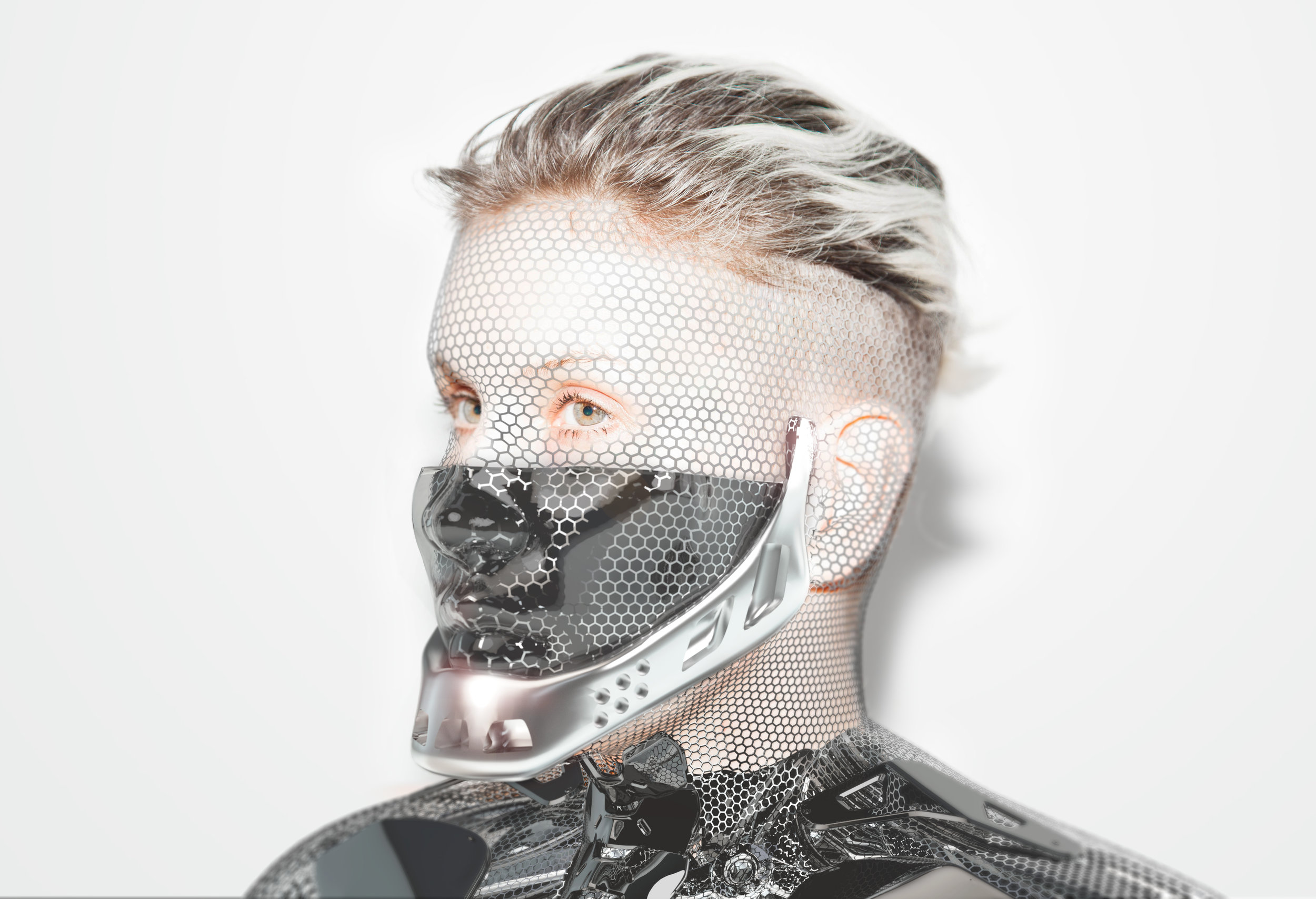
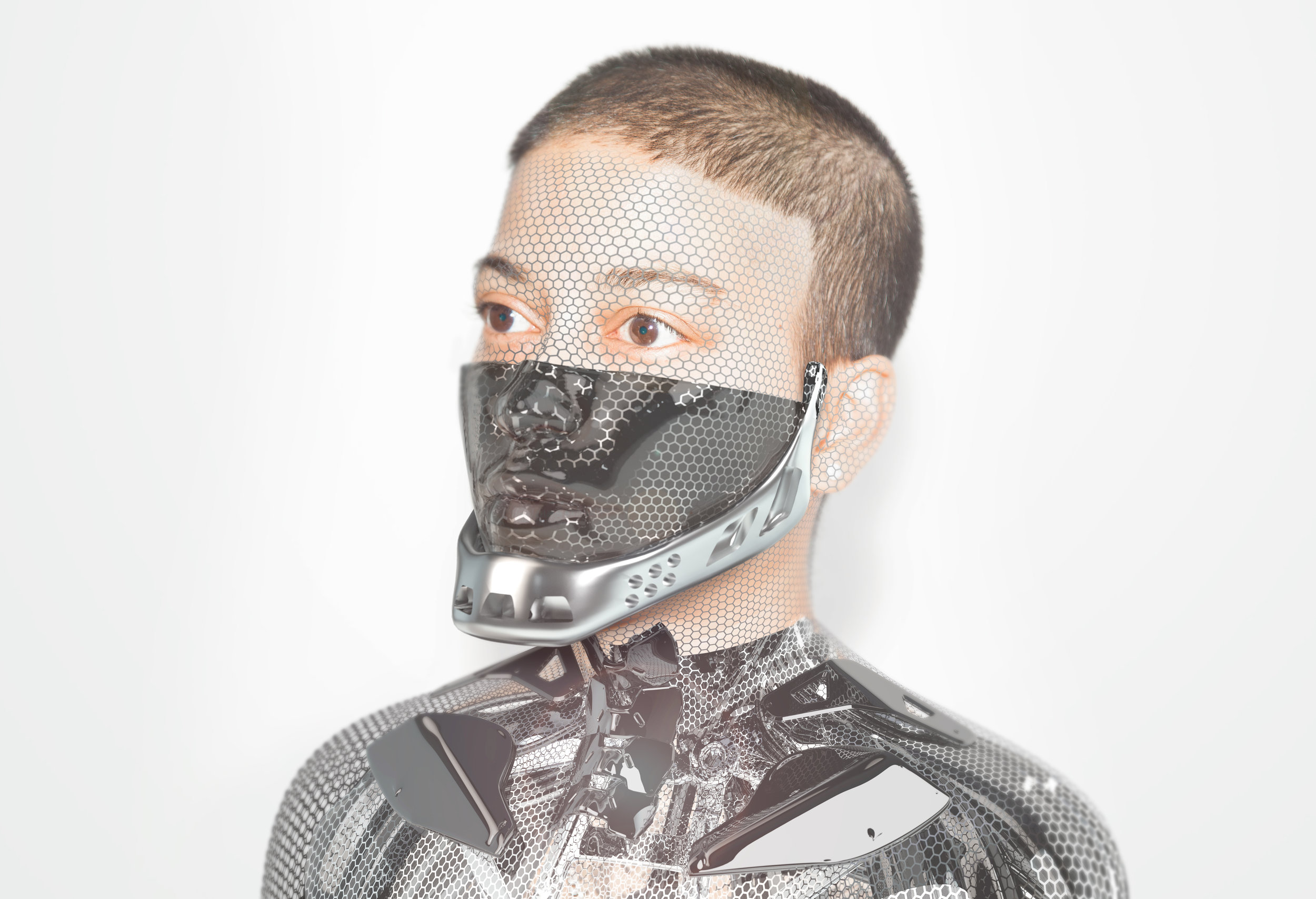
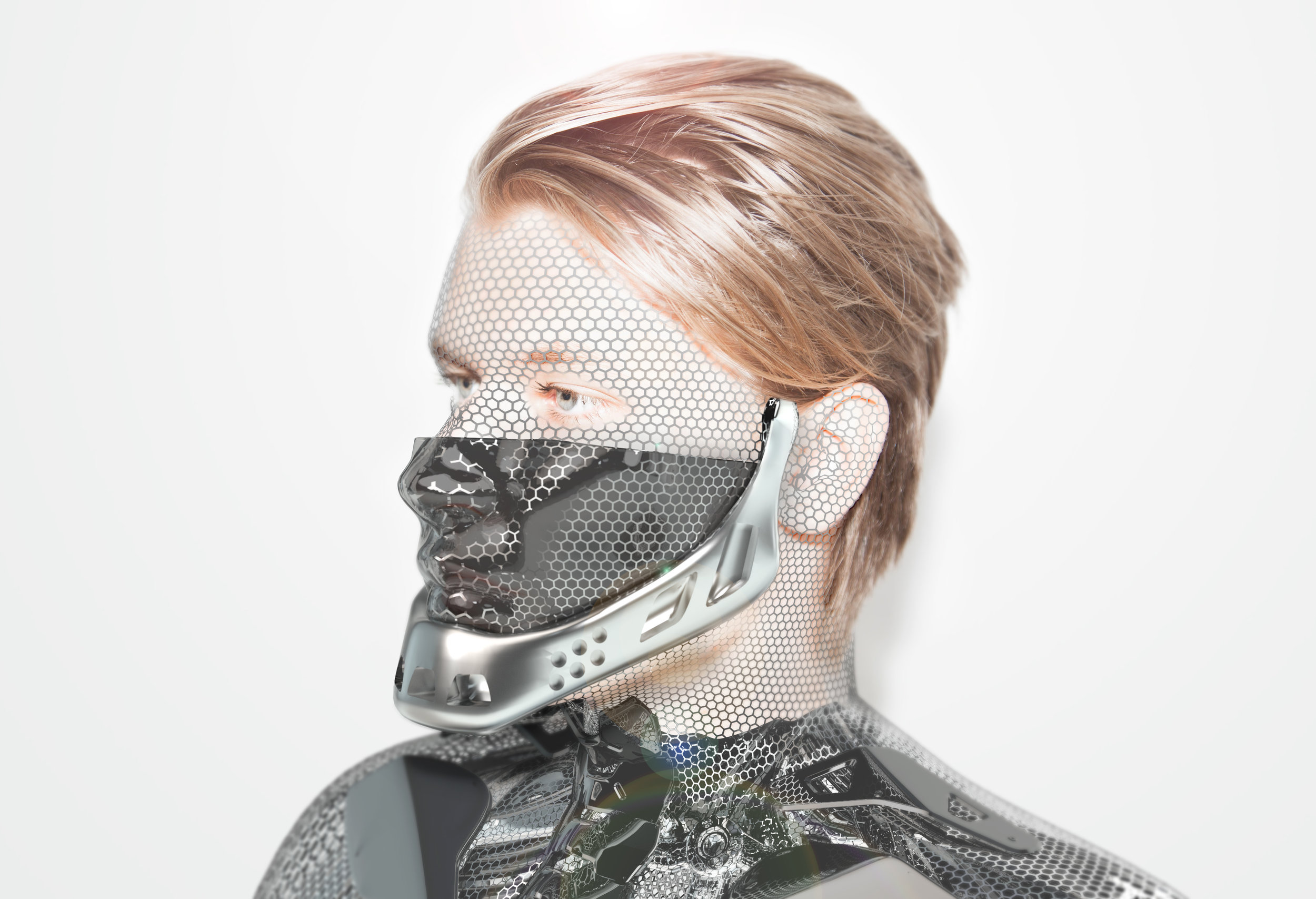
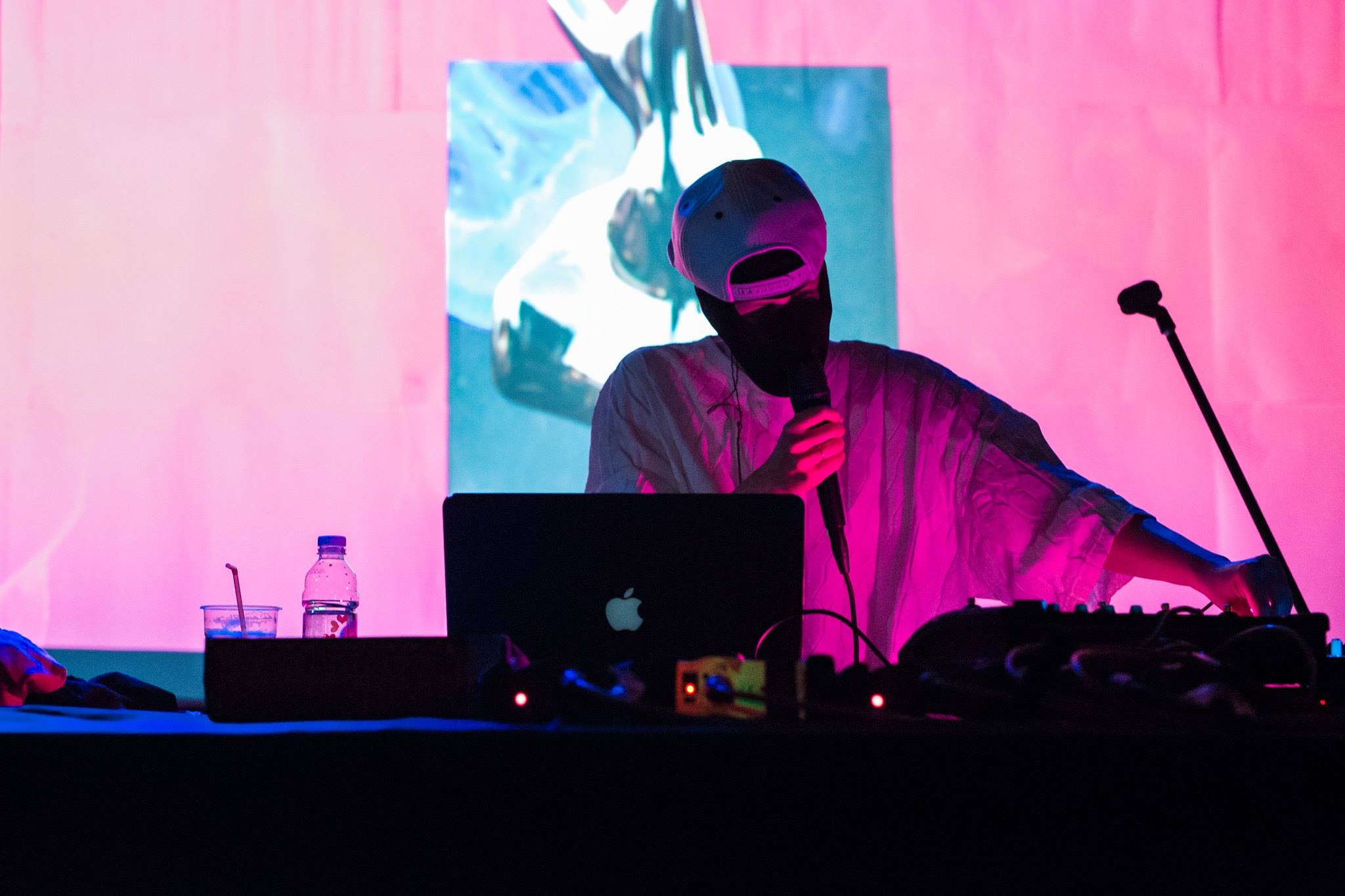
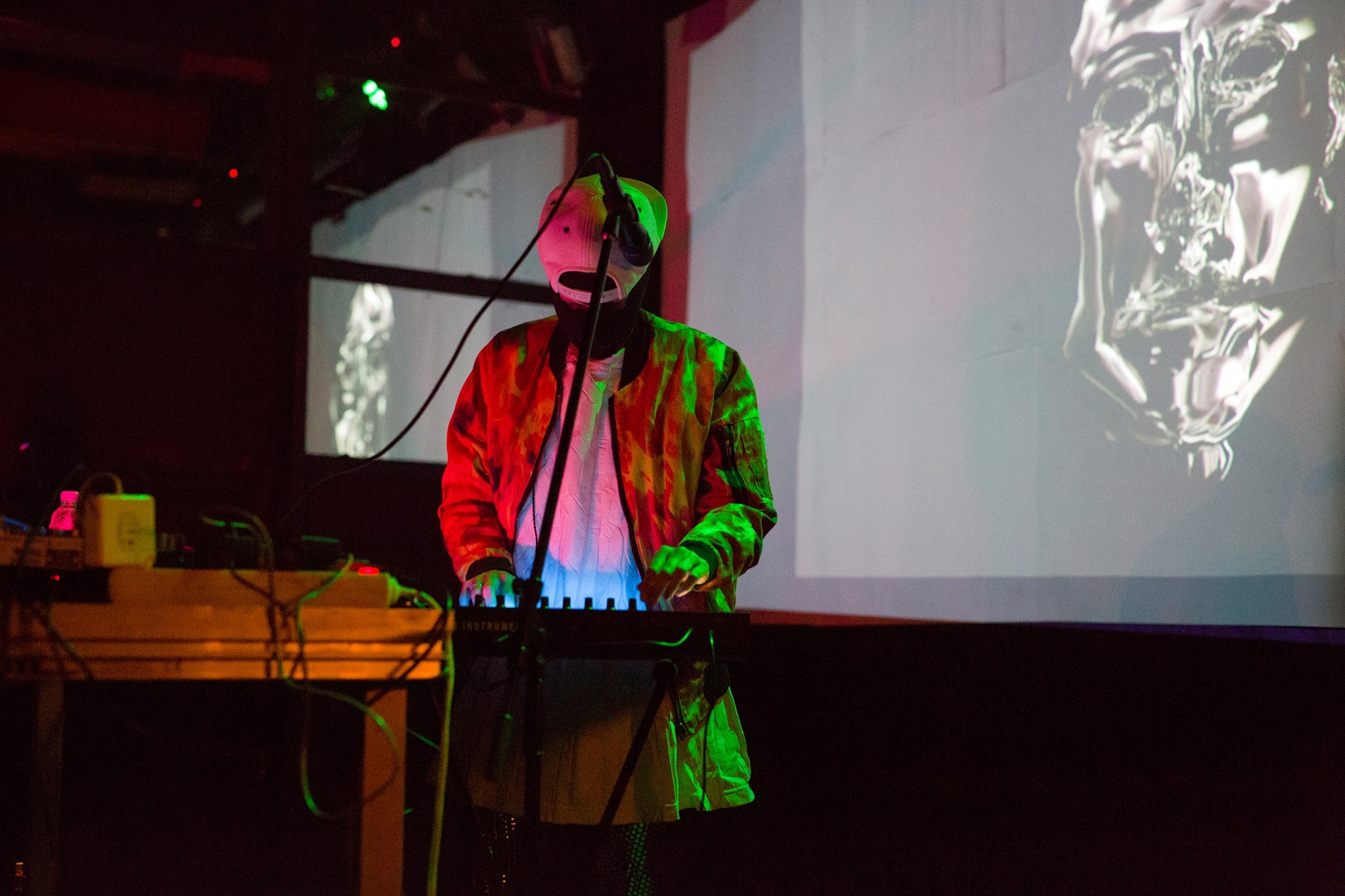
D: Tell me about the concept and ethos behind Born In Flamez.
I started Born In Flamez to express something you could call intermusicality—like Kristeva´s "Intertextuality,” just in relation to music. I feel like music is a kind of bricolage of our knowledge, influences, cultural surroundings, and aspirations, and ultimately it is a fusion with the tools we use to make it. That's why I call it post-human. Electronic music springs from the fusion of the machine and the person; a lot of it is based on contingency, algorithms, glitches and so forth, so sometimes the computer even plays the human. As a product of flesh and binary code it has no gender. Ultimately, Born In Flamez is a post-gender/post-human project and aims to address these very political issues through art.
D: In what key ways is technology changing how we interact with art and music—and how we view humanity?
The discussion of art vs technology is ancient; I could go back to the Greek meaning of technae here but I´m not going to nerd out. I think technology makes music accessible in a different way. If you look at art the ways to interact with a painting and the ways to interact with an interactive light sculpture or holographic performance are clearly very different. In a mind/body divide way even. But we have always used tools to shape our reality, whether that is a computer or a mirror. I wouldn't say the idea of humanity is shifting, however; there´s always been and probably always will be a great technophobia within the human sphere.
Politics and music have always had very strong ties as well. What are some key issues you wish to shed light on through Born In Flamez?
Obviously gender is one of my biggest topics. It's crazy how misogynist this world still is and how much we in our little artistic bubbles have our head in the clouds about it. It should never have been an issue. Do you know that the gender divide came about in the 1800s? Before this we were all considered one gender. It would be great to go back to that point of thinking or just accept that gender does not exist and is a concept that is fixated on us. Instead we are fluent beings with a multitude of needs and what you identify as should be enough to code you. I call Born In Flamez a project that is post-identity with which I refer to other boxes like nationality for example. How can some lines drawn up by some men on the grounds of whatever shape anybody's identity? I think the concept of nationality by itself is one of the biggest problems of today's society—the weird notion that something "belongs to you" and not somebody else because you were born into it by chance. Borders are all fake and they keep on shifting, and it is horrible to see what problems they cause currently; all those new fascist tendencies rising to power. I wonder what kind of world Second Life would have created if it had been around for longer.
D: That's a good point; Second Life had so many potentials. Technology is certainly a strong tool for changing ideas of borders and gender; through machines we become raw data, our desires transposed through circuitry and will. Do you think that it will eventually be a catalyst for doing away with the world's current outmoded way of thinking?
I feel like there is a big potential. Ideas are being exchanged faster, and there is a bigger flow of information. We transcend into so many different identities online. We can choose our avatars, shift shapes, and render reality. If we could learn from the way we interact with the internet it would be the easiest thing to understand how flexible identity is.
D: I feel that the problem with the internet is people's need to transpose the rules of the physical world on to it; the same petty arguments and old social ideologies. We've created a whole new reality and we just want it to be the old reality with more free things and porn.
J: Very true. But that’s because we are still narrated by our upbringing; dictated by the boxes. It's hard to deal with a morphing shape-shifter when all you can do is push squares. I guess the beauty of it is that you can now dictate your own narrative. I´m pretty sure we will be getting to that point—if the other world doesn't press the power button before.
